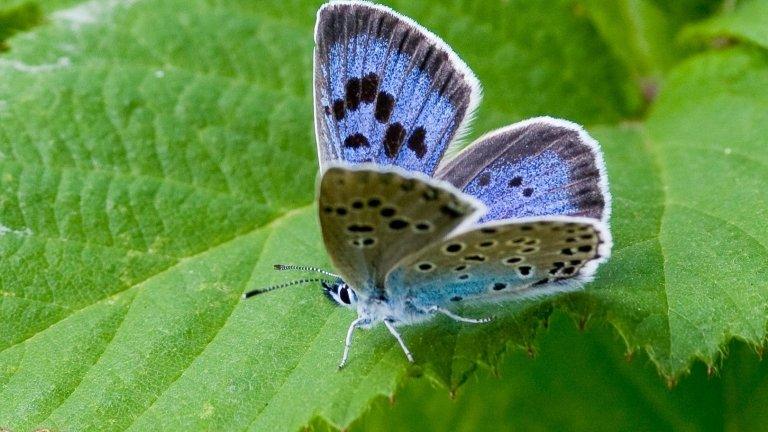Wild Isles: Daneway Banks' butterflies star in Attenborough series
- Published
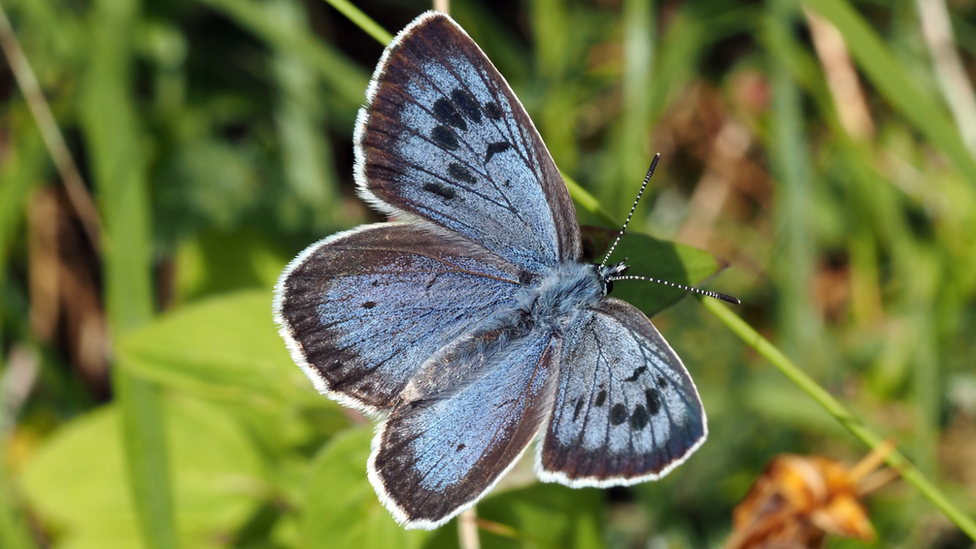
Large blue butterflies at Daneway Banks nature reserve feature in episode three of David Attenborough's Wild Isles
A nature reserve renowned for its large blue butterflies features in the third episode of Sir David Attenborough's new BBC series.
Daneway Banks, near Sapperton, is home to the largest known population of the species in the world.
Sunday's episode of Wild Isles will show the nature reserve's work to reintroduce the once-extinct butterfly.
Gloucestershire Wildlife Trust manager Alan Sumnall said it was a chance to see its life cycle like never before.
"The large blue's success story here at Daneway Banks is just one example of how our work to connect habitats across the county increases the resilience of species like the large blue," he said.
"They're now naturally dispersing over a wider area and our management of the reserve is encouraging so many other species to thrive too," Mr Sumnall added.
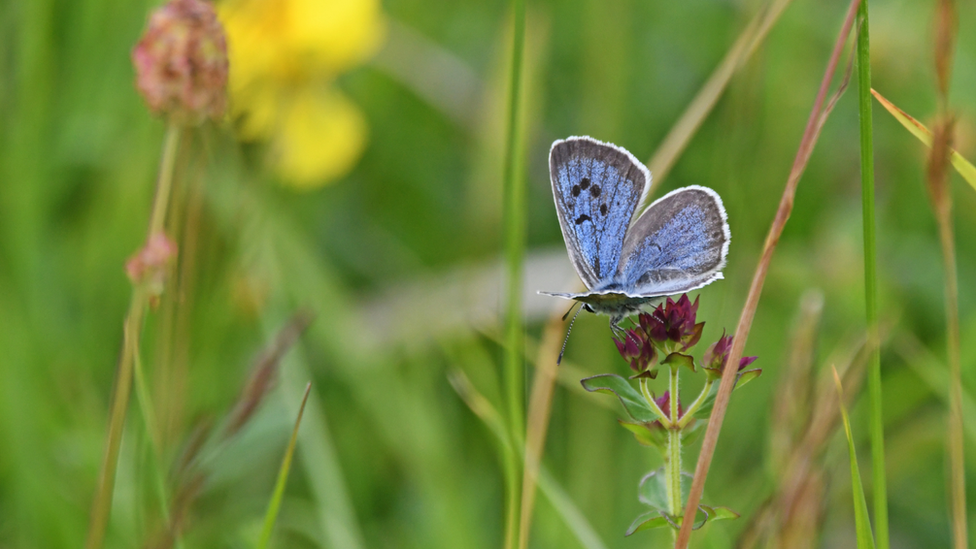
Daneway Banks is home to the largest known population of large blue butterflies in the world
In the episode named Grasslands, viewers will be able to take a closer look at the unexpected relationship between the large blue and red ants, showing in detail how the natural world is connected.
The butterfly's survival relies on a game of deception with the ants, which are tricked into adopting the large blue's unassuming but predatory caterpillars.
Large blues became extinct in the UK in 1979 and were reintroduced in Somerset in 1992.
In the next phase of the project 300 large blue caterpillars were released at Daneway Banks in 2010 and 12 years later the reserve was recorded as having the largest population worldwide.
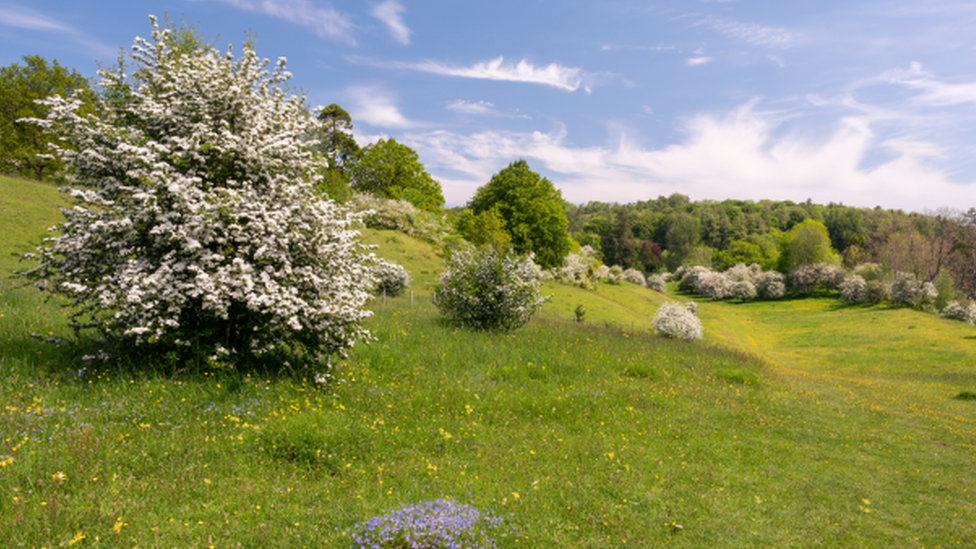
Daneway Banks nature reserve is located near Sapperton in Gloucestershire
Mr Sumnall paid tribute to the volunteers who support the project.
"Once the butterflies are "on the wing" in early summer, volunteer large blue wardens patrol the site to ensure their safety. It's a real team effort," he said.
Daneway Banks nature reserve is a site of limestone grassland co-owned by Gloucestershire Wildlife Trust and the Royal Entomological Society (RES).
Conservation project manager for the RES, David Simcox said: "The success of the large blue at Daneway...is a great tribute to partnership working and what science-based conservation can achieve."
Wild Isles is available to watch on Sunday at 19:00 GMT on BBC One and on iPlayer.

Follow BBC West on Facebook, external, Twitter, external and Instagram, external. Send your story ideas to: bristol@bbc.co.uk , external
Related topics
- Published12 March 2016
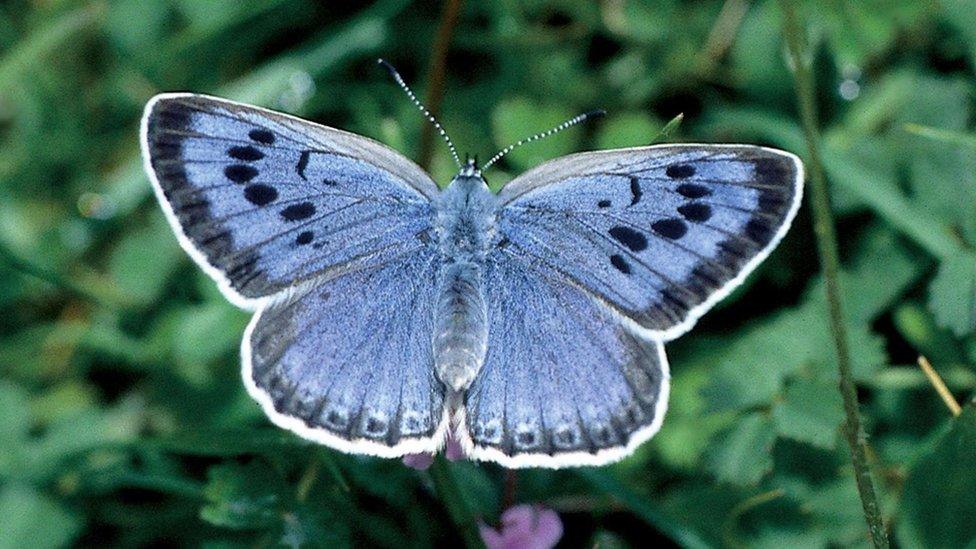
- Published19 September 2018
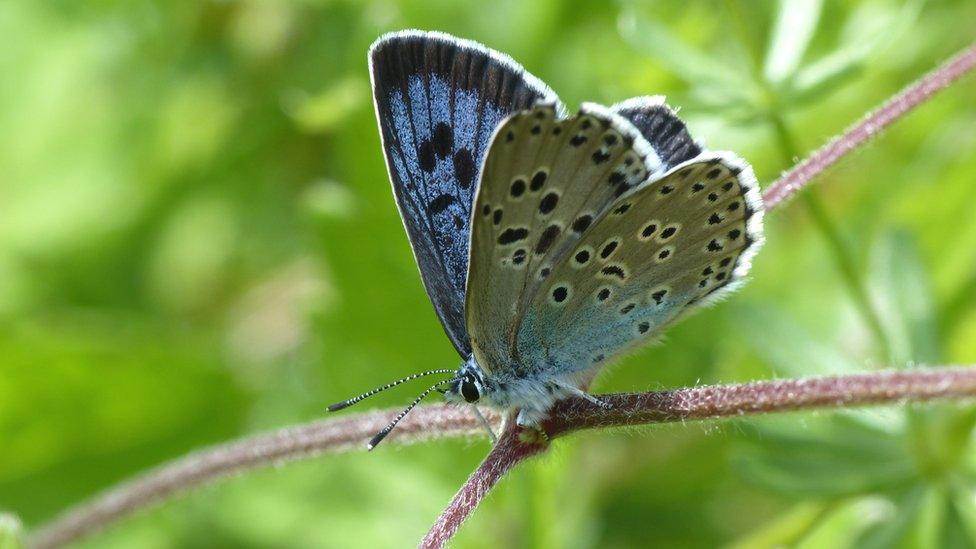
- Published21 May 2012
